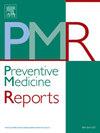美国成人糖尿病预测指数与糖尿病相关肾脏疾病的相关性:一项横断面研究
IF 2.4
3区 医学
Q2 PUBLIC, ENVIRONMENTAL & OCCUPATIONAL HEALTH
引用次数: 0
摘要
目的探讨美国成人糖尿病肾病(DKD)与浙江大学(ZJU)指数的关系。方法我们从2009-2020年全国健康与营养检查调查中选择了13549名20岁及以上的美国成年人。ZJU指数是空腹血糖、体重指数、甘油三酯和三倍谷丙转氨酶/天冬氨酸转氨酶比值的综合评分,女性加2分。DKD的定义是确认存在糖尿病并伴有尿白蛋白与肌酐比值≥30mg /g或肾小球滤过率≥60ml /min/1.73 m2。我们采用加权多变量logistic回归和敏感性分析来研究ZJU指数与DKD之间的关系。结果美国成人ZJU指数与DKD呈正相关。在调整模型中,ZJU指数与DKD呈正相关(OR: 1.13, 95% CI: 1.10, 1.16)。结论ZJU指数作为与DKD相关的代谢标志物具有潜在的应用价值。ZJU指数可作为DKD筛查的辅助生物标志物。然而,由于研究的横断面性质,我们无法推断ZJU指数与DKD之间的因果关系。本文章由计算机程序翻译,如有差异,请以英文原文为准。
Association between a diabetes-predictive index and diabetes-related kidney disease in U.S. adults: A cross-sectional study
Objective
This study aimed to investigate the association between Zhejiang University (ZJU) index and diabetic kidney disease (DKD) in U.S. adults.
Methods
We selected 13,549 U.S. adults aged 20 years or older from the National Health and Nutrition Examination Survey 2009–2020. The ZJU index is a composite score calculated by summing fasting plasma glucose, body mass index, triglycerides, and three times the alanine aminotransferase to aspartate aminotransferase ratio, with an additional 2 points for female subjects. DKD was defined by the presence of confirmed diabetes combined with a urine albumin-to-creatinine ratio ≥ 30 mg/g or an estimated glomerular filtration rate < 60 mL/min/1.73 m2. We employed weighted multivariable logistic regression and sensitivity analyses to investigate the association between the ZJU index and DKD.
Results
The ZJU index is positively associated with DKD in U.S. adults. In adjusted model, the ZJU index showed a positive association with DKD (OR: 1.13, 95 % CI: 1.10, 1.16).
Conclusions
The findings suggest ZJU index's potential utility as a candidate metabolic marker associated with DKD. The ZJU index may serve as an auxiliary biomarker for DKD screening. However, due to the cross-sectional nature of the study, we cannot infer causal relationship between ZJU index and DKD.
求助全文
通过发布文献求助,成功后即可免费获取论文全文。
去求助
来源期刊

Preventive Medicine Reports
Medicine-Public Health, Environmental and Occupational Health
CiteScore
3.90
自引率
0.00%
发文量
353
 求助内容:
求助内容: 应助结果提醒方式:
应助结果提醒方式:


